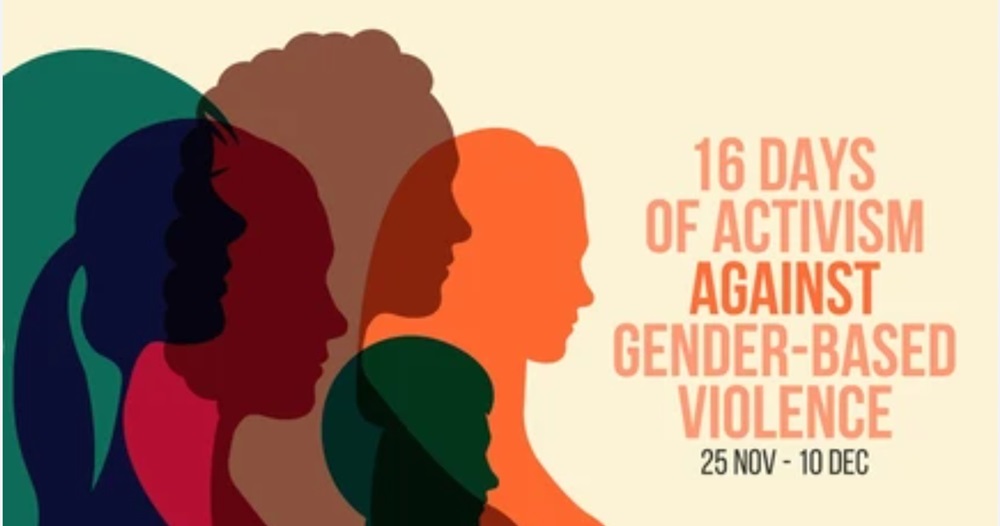
In a powerful effort to address the pervasive issue of Gender-Based Violence (GBV) in Nigeria, the Climate and Sustainable Development Network (CSDevNet) hosted a compelling advocacy webinar on November 25, 2023, the International Day for the Elimination of Violence against Women, with the central theme “UNiTE! Investing to Prevent Violence against Women and Girls.”
The event which kickstarted the “16 Days of Activism against GBV,” brought together notable advocates in the fight against GBV in Nigeria, who shared insights, strategies, and initiatives aimed at eradicating this deeply entrenched problem.
The moderator Jiata Ekele, set the stage by welcoming the participants and providing a comprehensive introduction to the issue of GBV in Nigeria, with alarming statistics and facts.

“Approximately 736 million women worldwide, or almost one in three, have experienced intimate partner violence, non-partner sexual violence, or both at some point in their lives (30% of women aged 15 and older),” she stated.
This figure does not include sexual harassment. The rates of depression, anxiety disorders, unplanned pregnancies, sexually transmitted infections, and HIV are higher in women who have experienced violence compared to women who have not, as well as many other health problems that can last after the violence has ended.
One of the distinguished speakers, Blessed Akinloye, Executive Director of Blessed Spring Health Initiative (BSHI), took the floor to define GBV and shed light on its various forms.
“Gender-based violence could manifest as physical, emotional, psychological, and occur in any setting, including the home,” she said.

According to the UNWomen statistics, most violence against women is perpetrated by current or former husbands or intimate partners. And more than 640 million or 26 per cent of women aged 15 and older have been subjected to intimate partner violence.
Blessed drew attention to the cultural aspects of GBV, specifically highlighting the challenges faced by new widows in certain regions of Nigeria.
She also shared insights into the strategies and initiatives her organisation has undertaken to combat GBV, focusing on the power of knowledge through sensitisation campaigns among schools.
“BHSI has been carrying out a lot of sensitisation exercises in schools,” she said.
“We teach them life skills on how to prevent GBV and respond to them when they happen as a human right issue. We host peace building talks and provide counselling sessions, mentorships or referrals,” she added.
To conclude, Blessed passionately called for an end to all forms of GBV, urging that victims should not bear shame or stigma.

Another panellist, Anne-Marie Abaagu, the Nigeria Executive Director of Women Environment Programme (WEP), reinforced the interconnectedness of environmental sustainability, women’s empowerment, and GBV.
She detailed the impactful initiatives spearheaded by WEP.
“WEP has implemented numerous initiatives and strategies to end GBV for decades,” she said.
“Initiatives have ranged from policy lobbying to domesticate the gender affirmative bill in Benue state, to collaboration with various stakeholders, including lawyers, police, and the military, in a bid to prevent GBV extremism,” she added.
Anne-Marie emphasised the importance of empowering women and youth through skill-building programs, such as tailoring, and outlined WEP’s efforts to ensure the sustainability and ownership of these projects through developing cooperative structures.
The third speaker, Baliqees Salaudeen-Ibrahim, a Social Impact Strategist and co-founder of Green Republic Farms (GRF), brought attention to the vulnerability of women and girls in marginalised communities, linking it to agriculture, environmental issues and poverty.
She shared Green Republic Farms’ initiatives, particularly in empowering women in agriculture as a means to combat GBV.

Baliqees underscored the need for anonymity and protection for GBV survivors, especially in cases of rape, to avoid stigma and discrimination.
The webinar concluded with a stark reminder of the alarming statistics surrounding GBV in Nigeria.
The efforts of civil societies in Nigeria to preventing GBV thus far was also appreciated while urging learning process for the initiatives to be replicated.
There was a call for increased cooperation and synergy to drive more strategic advocacy and investment in the fight against gender-based violence.
As the world marks the International Day for the Elimination of Violence against Women, CSDevNet’s advocacy webinar serves as a learning hub and poignant call to action, urging society to unite in the pursuit of a future free from the shackles of gender-based violence.
